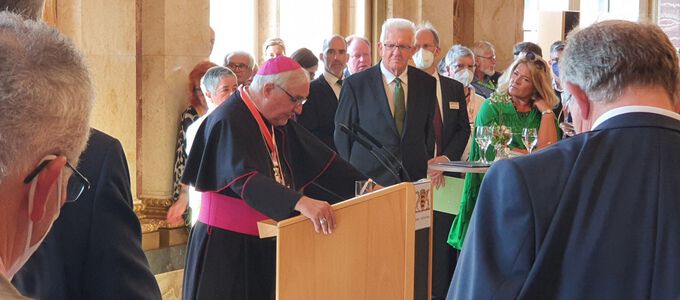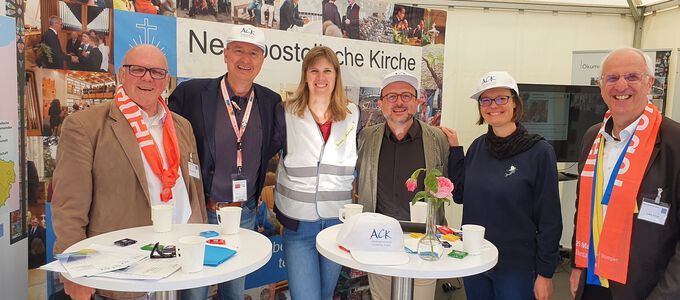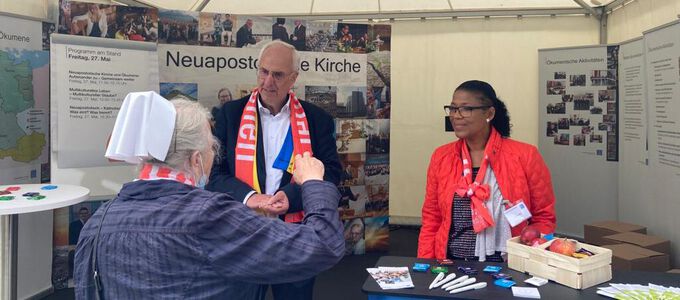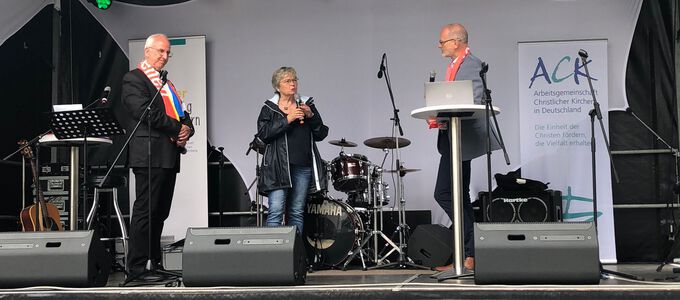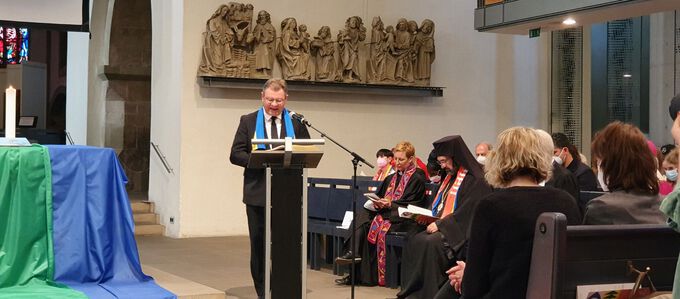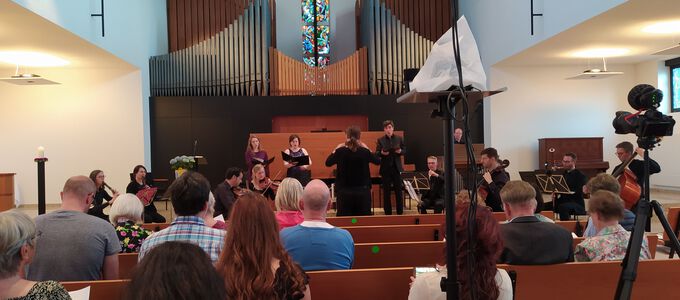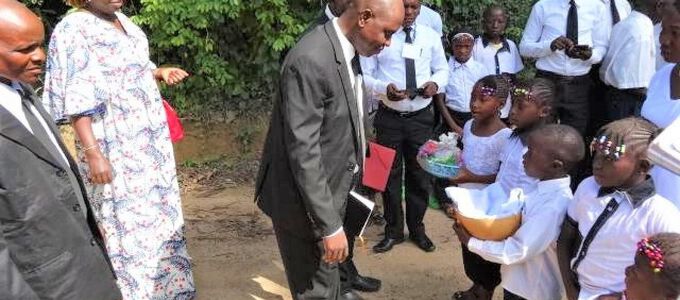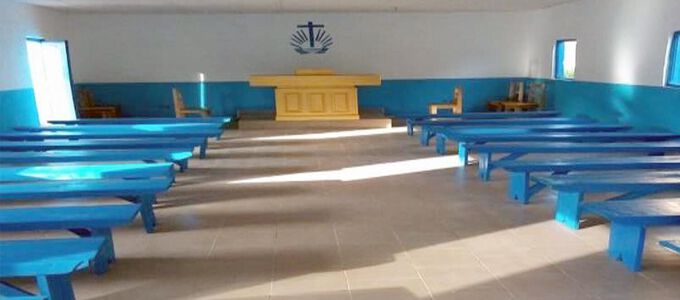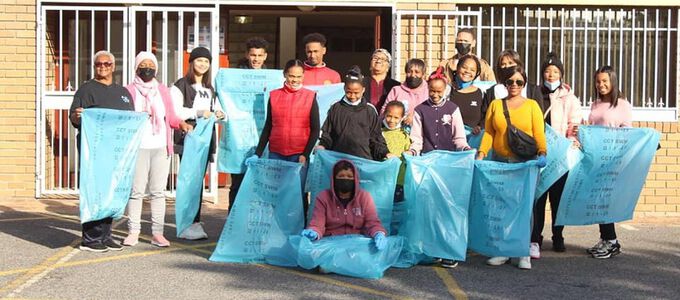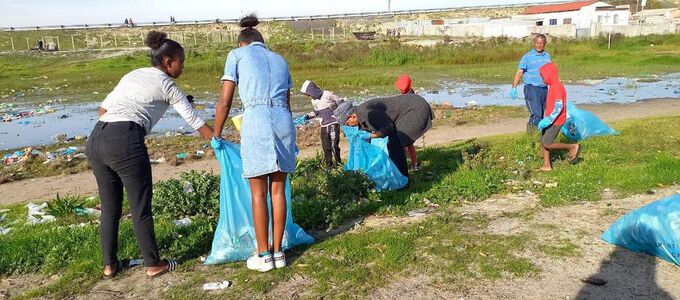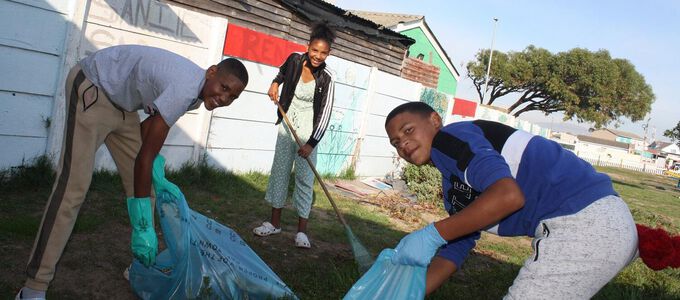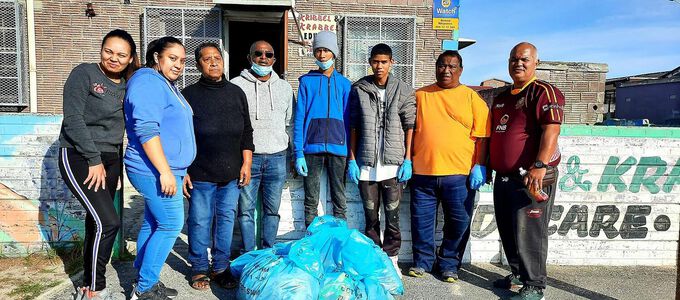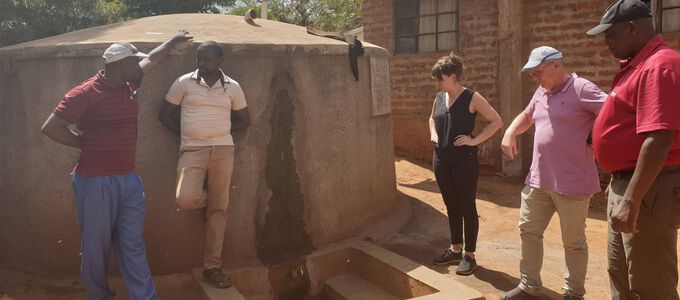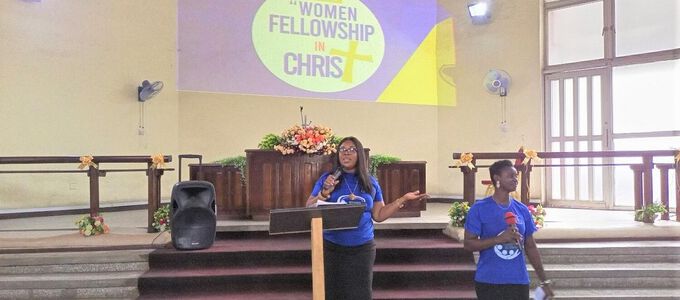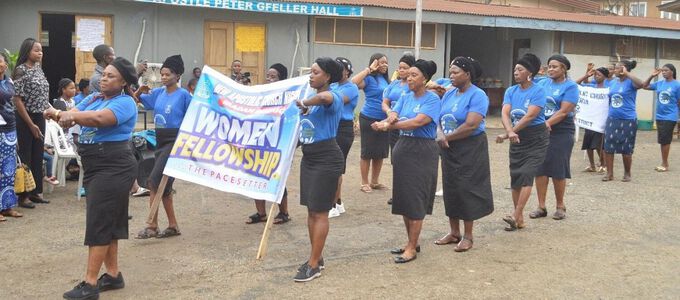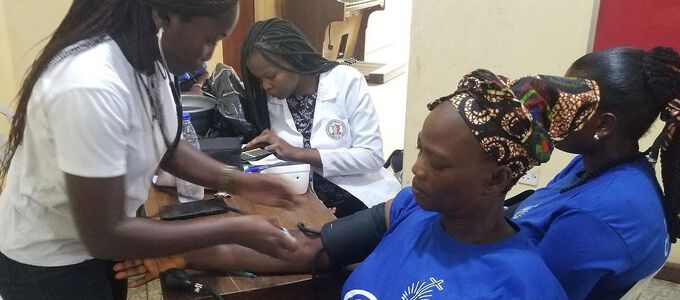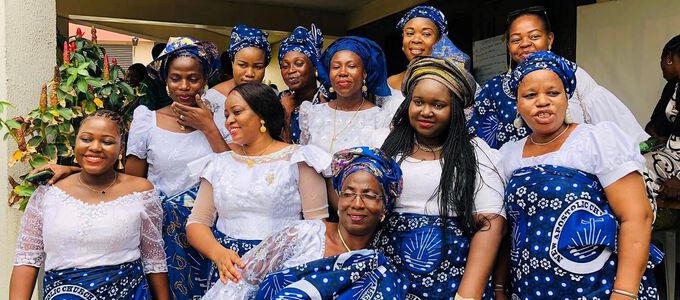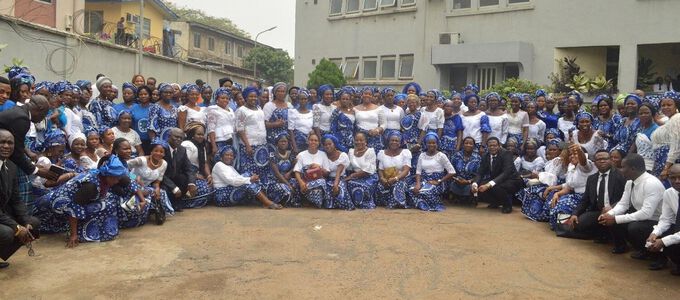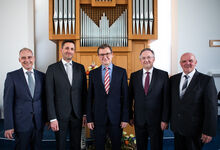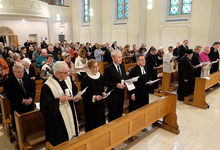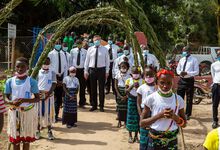The Church nails its colours to the mast
One earth, many people; one Christianity, many denominations; one congregation, many hands. There are many ways to foster fellowship and in the process profess one's beliefs, whether in cleaning up the environment, ecumenism, or putting women in the spotlight.
Ecumenism
The New Apostolic Church took part in the 102nd German Catholic Convention in Stuttgart, Germany. Its Working Group Contacts with Denominations and Religions (WG CDR) sent delegates. The Catholic convention took place from 25 to 29 May and was ecumenical in spirit. This is how the New Apostolic Church was able to present itself at a booth on the Church Mile, participate in a total of seven round-table discussions with representatives of other religions, and contribute to an ecumenical service. The members of the New Apostolic working group also took part in panel discussions. A highlight was the concert in our church in Stuttgart-East, where some of our Church members performed the orchestra suite No. 3 in D major and the cantata “Brich dem Hungrigen dein Brot” (Break your bread with the hungry) by Johann Sebastian Bach.
The dedication of our church in Koffodou in Guinea also turned into an ecumenical event of sorts. All the churches of Koffodou, as well as other New Apostolic congregations, were invited to the inaugural ceremony of our new church there on 18 April. District Elder Touré Victor read the history of the congregation, after which Apostle Saa Marc Lenó conducted the divine service. It was based on 2 Chronicles 7: 15–16: “Now My eyes will be open and My ears attentive to prayer made in this place. For now I have chosen and sanctified this house, that My name may be there forever; and My eyes and My heart will be there perpetually.” The Apostle wished the congregation that anyone who prays in the sanctified church would find that their prayers bear fruit. After the service, delegates of the administrative authorities in Koffodou also addressed the congregation.
Only one Earth
On Pentecost Monday, which is also World Environment Day, members from the Lentegeur district in South Africa got together to clean up. World Environment Day encourages worldwide awareness and action to protect our environment. It was established in 1972 by the United Nations Environment Programme (UNEP) and raises awareness on environmental issues. About 150 countries participate in activities every year to mark the day. The members of from Lentegeur gladly helped with the clean-up and enjoyed each other’s fellowship in the process. They collected kilos of garbage in big blue garbage bags.
When the girls use the toilets in their school in Kaundu in Kenya they actually help that meals in their school can be prepared in an environmentally friendly way. How can that be? Well, the relief organisation of the New Apostolic Church nak-karitativ funded a biogas unit for the newly built girls’ toilets. Human waste is flushed into an underground tank and is enriched with water. Bacteria do the rest of the job and break the waste down. This then passes through an eight-chamber system, producing water, carbon dioxide, and methane. The gas is diverted directly into the school kitchen, where nearly 600 meals are prepared on a daily basis. The system is a huge asset for the school: the school not only saves money on firewood, but it also protects Kenya’s forests and the health of the teachers and students.
Women in the spotlight
Women in Nigeria came together for a two-day programme called “Teach me to teach” in April. Dressed in traditional dresses with Church logos and wearing convention T-shirts made from cloth that had been specially designed for this day, the women enjoyed one thing above all else: fellowship. In seminars, workshops, and health talks they learned a lot that they could also pass on to their congregations. In between there was a lot of singing. Apostle Oscar Kabanga Nwanza conducted a divine service on Palm Sunday, which marked the end of the event. In his sermon, he put the focus on three special women from the Bible: Deborah, Esther, and Mary Magdalene.
Article info
Author:
Date:
Keywords:
Katrin Löwen
10.06.2022
Guinea,
Kenya,
Nigeria,
South Africa,
Germany,
divine services for ministers,
devotions,
dedication/inauguration,
Denominations,
Social commitment


